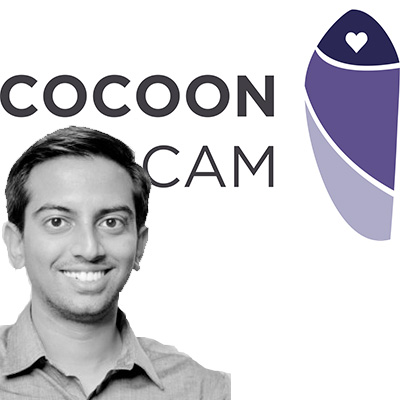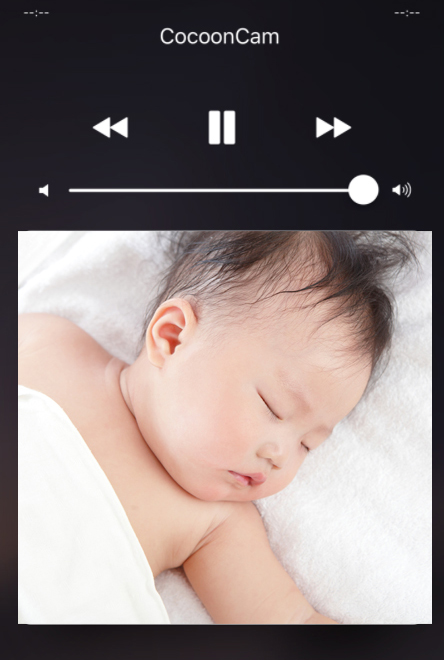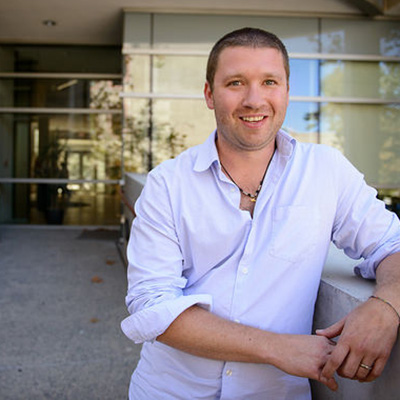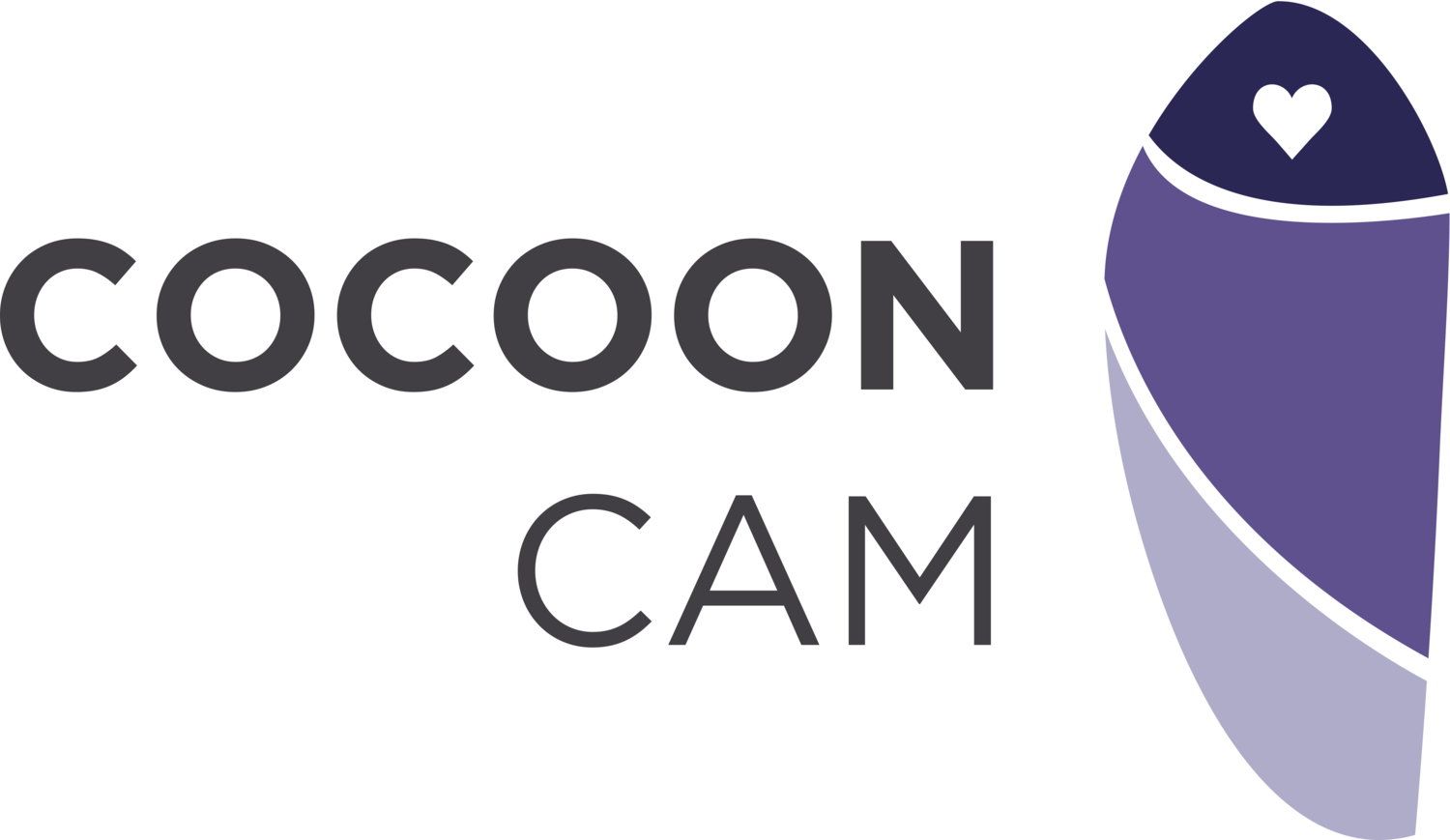
Cocoon Cam, a computer-vision-based baby monitor company co-founded by CSE alumnus Pavan Kumar (M.S. Computer Science '15), recently announced that it closed a $4 million Series A funding round. Cocoon Cam makes baby monitors that rely on computer vision technologies to track breathing and other vital signs. The devices offer instant alerts and sleep analytics that can be accessed by parents anytime through a smartphone app.

(M.S. '15), is cofounder and Chief
Technology Officer of the baby-
monitor tech company, Cocoon Cam.
Pavan Kumar was a master’s student in computer science when the people, ideas, technologies and commercialization expertise came together to create Cocoon Cam. During this exciting couple of years, Kumar made good use of a wide range of entrepreneurship education and research opportunities at UC San Diego. These opportunities were crucial in helping the Cocoon Cam team develop its initial prototypes into a company that is currently selling a product that many parents want.
“UC San Diego has definitely played a big role in where we are today,” said Kumar, who has been CTO of Cocoon Cam from day one. The original iOS developer of the app Cocoon Cam app is also a CSE alumnus: John Chou (B.S. '15), who is now a software engineer at Intuit in San Diego.
Cocoon Cam’s latest baby breathing monitor, which includes HD video and streaming audio, launched in February of 2017. It is currently sold on the Cocoon Cam website and a variety of online retailers. In July 2017, Cocoon Cam plans to begin selling its baby breathing monitors in brick-and-mortar Target and Babies "R" Us stores nationwide.
The $4 million in Series A funding, led by Happiness Ventures with participation from previous angel investors, brings Cocoon Cam’s total investment to $5.01 million and will be used to help the company grow.
Entrepreneurship ecosystem at UC San Diego
Kumar took advantage of a wide range of entrepreneurship education resources at UC San Diego including the Jacobs School of Engineering’s ENG 200 entrepreneurship course series and the UC San Diego version of the National Science Foundation-funded Innovation Corps (I-Corps) program, which helps student entrepreneurs determine whether their idea could turn into a viable company. The I-Corps program includes funding, mentoring and training in entrepreneurial thinking.

monitor the vital signs of sleeping babies.
“Pavan came to the I-Corps program in the fall of 2014 focused on improving their computer vision algorithms, and he left with a deep understanding of how to focus on customer needs,” said Dennis Abremski, who mentored Kumar and his team during both the UC San Diego and national versions of the I-Corps Program. Abremski went on to become an official advisor for Cocoon Cam.
“The best thing that came out of UC San Diego I-Corps was meeting Dennis,” said Kumar. “You definitely want a very strong mentor who believes in what you are doing and who has ‘been there, done that’ multiple times.”
In late 2016, Abremski was named Executive Director of the Institute for the Global Entrepreneur at UC San Diego, which is a collaboration between the Jacobs School of Engineering and the Rady School of Management. The Institute for the Global Entrepreneur now runs the I-Corps program at UC San Diego as well as a wide array of other education and technology accelerator programs.
The list of entrepreneurship and commercialization resources at UC San Diego that Kumar took advantage of didn’t end with I-Corps and the Eng 200 entrepreneurism course series. Kumar also received support from the Moxie Center for Student Entrepreneurship at the Jacobs School of Engineering. In addition, a Rady School of Management MBA team, comprising of two MD’s and 2 PhDs, studied the business opportunities and helped mitigate the challenges surrounding the Cocoon Cam team’s technology during a two-quarter Lab to Market course series; Lab to Market is the signature program of the Rady School MBA curriculum. Kumar himself also earned a micro MBA from the Rady School.
Research Opportunities at UC San Diego
Kumar tapped into far more than the entrepreneurship-education opportunities at UC San Diego. He also accessed some of the Jacobs School’s cutting edge computer science research. Kumar made this point in an interview for a Jacobs School story written in 2015 when Cocoon Cam returned from a Demo Day at the Obama White House. “I chose UC San Diego for the level of exposure to research given to master’s students,” said Kumar. “Most other schools only offer that to Ph.D. students.”

Nadir Weibel helped the founders of
Cocoon Cam develop the technology.
He now serves as a scientific advisor
to company management.
Kumar did the original research for his computer science master’s project with Nadir Weibel, an associate research professor in the Department of Computer Science and Engineering at UC San Diego. Weibel runs the Human-Centered and Ubiquitous Computing lab and is currently a scientific advisor for Cocoon Cam.
Kumar sought out this research opportunity in Weibel’s lab after he returned from an internship at Apple in the Silicon Valley half-way through his master’s studies. While the Apple internship was a success, the real excitement for Kumar started at a series of hackathons in the Valley over that period. It was at those hackathons that he connected with Sivakumar Nattamai, the Cocoon Cam CEO and co-founder who had the initial idea.
"The idea for Cocoon Cam came about with the birth of my daughter. Experiencing first-hand the combination of excitement and anxiety of being a new parent, it was clear that knowing your baby is safe and sleeping well are priceless,” said Nattamai.
Kumar leveraged his expertise in computer vision, skills which he first cultivated during his undergraduate years in India. He and Nattamai quickly created the first iterations of a computer-vision-based solution for monitoring the vital signs of sleeping babies.
Kumar returned to UC San Diego after the Apple internship full of excitement about the project and ready to find a lab where he could test out his algorithms and refine them. That’s exactly the opportunity he found in the Weibel lab.
“In my lab, we are focused on how you can actually use interactive technologies for health and heath care,” said Weibel.

This expertise in doing health-related research that incorporates interactive technologies is what attracted Kumar to Weibel’s lab. His intuition was right. In Weibel’s lab, Kumar had opportunities to test his algorithms that enable the use of computer vision for monitoring vital signs “in a context that matters.”
Weibel also played a crucial role in getting the Institutional Review Board (IRB) approvals for some of the foundational validations of early versions of Cocoon Cam.
“You need to test algorithms in real world situations. You need to know how people will perceive your system, how they use your system,” said Kumar.
“It was super exciting to see what was coming out of the Cocoon Cam team’s efforts,” said Weibel, who went on to join Kumar and Abremski for the national portion of the NSF I-Corps program.
“This experience with Pavan and Cocoon Cam and the NSF I-Corps Program and what is now the UC San Diego Institute for the Global Entrepreneur changed how my lab and my research work. I wasn’t expecting to go into entrepreneurship, but now I’m more proactive with my students. I encourage them to consider the entrepreneurship angle.”
Weibel is not alone. Through the Institute for the Global Entrepreneur and across the entire UC San Diego campus, there are many efforts aimed at helping students, faculty and staff bring their innovations out the labs and into society. The Institute for the Global Entrepreneur’s new IGE Technology Accelerator is just one example.
“Stay tuned, there are many more exciting startups that will emerge thanks to the education and technology acceleration work of the Institute for the Global Entrepreneur,” said electrical engineering professor Sujit Dey, Director of the Institute for the Global Entrepreneur.
These Institute for the Global Entrepreneur initiatives include the IGE Technology Accelerator, the UC San Diego I-Corps program, the Gordon Center for Engineering Leadership, an education collaboration in which Jacobs School and Rady School graduate students work together to commercialize real innovations through the Rady School’s Lab to Market course sequence, as well as a series of new IGE initiatives that are in development.
“We are proud of our students putting their UC San Diego education and mentoring to good use and applying technology to benefit society and to create jobs. The Rady School of Management and the Jacobs School of Engineering are helping UC San Diego become an entrepreneurial powerhouse. The opportunities are boundless; we have just seen the tip of the iceberg,” said Vish Krishnan, Associate Director of the Institute for the Global Entrepreneur and the Rady School director of Entrepreneurship programs and Chaired Professor of Innovation, Technology and Operations.
Related Links
Institute for the Global EntrepreneurI-Corps Program at UC San Diego
Cocoon Cam
Cocoon Cam funding press release

